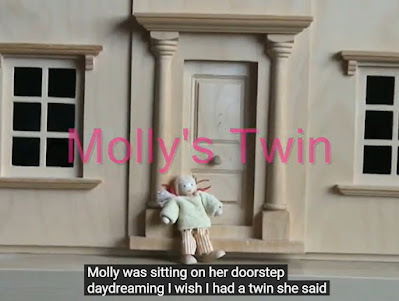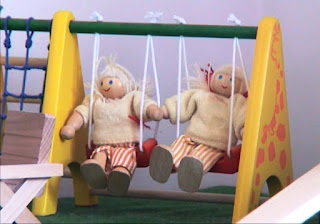When my mother-in-law used to travel up from the South to visit us, and passed through Barnsley on the train, one of her worst fears was that her grandchildren would grow up to have accents like those she heard around her. The broad Barnsley accent can be quite difficult to follow, and unintelligible to many from the South.
Some of our children’s contemporaries did indeed speak like that, but not them. As I mentioned in the last two posts, our daughter was teased at school for sounding ‘posh’, and was embarrassed by her voice in the two stop-motion video stories we made when she was little. It was quite a surprise when she said recently it is now her Yorkshire accent that bothers her.
The rather impressive subtitling on YouTube has no problem with it. It transcribes almost all of it correctly. In fact, I wasn’t quite sure of the word “daydreaming” until I switched them on.
I doubt it would have so little trouble with unmodified Barnsley. I also wonder what it would have made of my mother-in-law’s mixture of South London and “Snolbans”. I endlessly mimicked her pronunciation of “strawbrizz, raarzbrizz and guzzbrizz”? “They are raarzbrizz, not rasp
berries,” she would strike back.
And what of my own unbroken childhood accent? It can be heard in an exchange 45 seconds into the compilation I made from the old take of my dad singing and reading poetry (Days of Wine and Roses, May 1st). It includes the following exchange:
(laughter)
Dad: Right. I am now about to begin.
Me: You’ll ’ave all the laughing in.
Brother: Yes, you will, won’t you.
(more laughter)
Me: Hey! When you think about it what we’re all laughin’ at? It's a waste of tape.
Dad: My tape.
Embarrassing as I now find it (and there is a good deal more on the full tape), the YouTube subtitling copes with it surprisingly well. And although it struggles in places, it even follows most of my then sixty-five year-old Grandma’s village accent, fashioned before the First World War, as heard playing with my baby cousin later in the extract.
I also had a cassette tape of chatting with
friends as teenagers. Listening again recently, I was appalled, not only by the accents, but also by the language
used and what was being said. I rapidly abandoned my first idea of
sending it to them and threw it away. Now, I wonder what the subtitling would of made of it. I can’t imagine. We don’t always like what we see
or hear when we look back.
There is one further aspect of YouTube subtitling I find astonishing. It can automatically translate into any one of over a hundred and twenty other languages. For example, if you want it in French:
Not always perfect, but it can only get better. It can even do Welsh, Irish, and Scottish Gaelic. Who knows, one day it might



